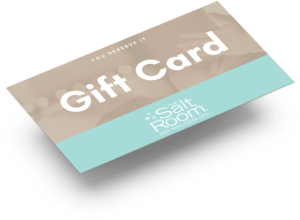Adrenal Support Important for Coping With Prolonged Stress
August 3, 2015
When the famous physiologist Hans Selye was conducting his original research on the stress response in the 1930s, he observed that prolonged and sustained stress eventually attacked the adrenal glands themselves.
The end stage of maladaption to stress was the exhaustion phase, during which levels of cortisol production declined to below those needed to sustain health because of the atrophy of the adrenals.

This is not unlike the situation with type 2 diabetes. At first, there is a state of insulin resistance whereby the pancreatic cells overproduce insulin to compensate, but after a period of time, this overproduction takes its toll and the insulin-producing cells become spent, with insulin levels falling rapidly. Likewise, in a stressed individual, there is overproduction of cortisol that overtaxes the capacity of the adrenal glands, especially the adrenal cortex. This can eventually lead to a weakening of the adrenals with correspondingly lower levels of cortisol.
In the popular literature we often hear the term adrenal exhaustion used, but this is misleading since genuine adrenal exhaustion is life-threatening. Only in severe cases does chronic stress eventually lead to a dangerously pronounced underproduction of cortisol. A better term to use is adrenal depletion, meaning the adrenal glands temporarily underfunction because of the high demands placed on them.
However, all of this does highlight that stressed individuals will benefit if their adrenal glands are supported, irrespective of whether cortisol is high or low, but especially for adrenal depletion. The herbs that can do this are known as the adrenal restorative or adrenal tonic herbs.
The key herbs that support adrenal function are licorice (Glycyrrhiza glabra) and uncured rehmannia (Rehmannia glutinosa). The information that backs up their use in this context comes largely from pharmacological models, but there is also some support from traditional use and clinical studies. These adrenal restorative herbs work best in conjunction with adaptogens. On the other hand, giving adaptogens to someone who is chronically stressed may not be enough without these herbs to also support the adrenals.
Licorice
In the British Herbal Pharmacopoeia and the British Herbal Compendium, licorice is described as an adrenal agent and adrenocorticotropic (which herbalists now regard as adrenal supportive) and indicated for primary adrenocortical insufficiency and autoimmune Addison's disease.2,3 Addison's disease is an adrenal disease characterized by the progressive destruction of the adrenal cortex, resulting in insufficient production of aldosterone and hydrocortisone.
Glycyrrhizin from licorice has reduced the suppressive effect of cortisol on the adrenocorticotropic hormone (ACTH) secretion and adrenal weight. ACTH from the pituitary stimulates and maintains the adrenal glands. In a clinical study, oral administration of glycyrrhizin (150-300 mg/day) blocked the effect of the steroid drug dexamethasone in lowering the amount of urinary metabolites of cortisol as the result of pituitary (ACTH) inhibition.4
In the 1950s, licorice extract was found to be a successful medical treatment for some cases of Addison's disease. Patients could be maintained on 3-60 g/day of extract; the lower dosage was used when the disease was controlled.5 In one case treated with an initial high dose of licorice extract, the dosage was dropped to a low maintenance dose. The doctor noted an increased sensitivity and cumulative action from licorice.6 This suggests licorice may assist in the recuperation of the adrenal cortex.7
If you recommend licorice to patients, there are some precautions that should be observed. It can cause high blood pressure and thus is contraindicated in hypertension and edema. Caution is advised if patients are taking cortisol or prednisolone, and in the elderly and those with cardiac, renal or hepatic disease. Do not recommend licorice if the patient is taking potassium-depleting diuretics. So, licorice needs to be taken cautiously, and please avoid excessive doses. When taken for prolonged periods, it should be in conjunction with a high-potassium and low-sodium diet, and keep an eye on blood pressure.
Rehmannia
In Western herbal medicine, rehmannia is regarded as an adrenal tonic or supportive herb, due mainly to the activity demonstrated in experimental studies. Oral administration of uncured rehmannia (3 g/kg) for two weeks to rabbits chronically treated with the glucocorticoid dexamethasone significantly raised serum corticosterone levels. (This is a model of adrenal depletion.) Continuation of treatment resulted in further increases. Rehmannia treatment also prevented or reversed changes in the pituitary and adrenal cortex, appearing to antagonize the suppressive effect of glucocorticoids on the hypothalamic-pituitary-adrenal (HPA) axis.8
Rehmannia may work by inhibiting the negative feedback from the steroid drug to the pituitary gland.9These results also suggest that rehmannia supports the cells of the adrenal cortex and pituitary during times of prolonged stress. Typical useful doses for adrenal support are about 2-4 g per day for licorice root and around 2-4 g per day for rehmannia.
References
- Durrant-Peatfield B. Your Thyroid and How To Keep It Healthy. London: Hammersmith Press, 2007.
- British Herbal Pharmacopoeia. Bournemouth, UK: BHMA, 1983.
- British Herbal Compendium. Bournemouth, UK: BHMA, 1992.
- Kumagai A, Asanuma Y, Yano S et al. Effect of glycyrrhizin on the suppressive action of cortisone on the pituitary adrenal axis. Endocrinol Jpn 1966;13(3):234-44.
- Knowles JP. Addison's disease with glycyrrhizophilia. Proc R Soc Med 1958;51(3):178.
- Calvert RJ. Liquorice extract in Addison's disease; successful, long-term therapy. Lancet1954;266(6816):805-7.
- Mills SY. The Essential Book of Herbal Medicine. London: Penguin Arkana (Penguin), 1991.
- Cha LL, Shen ZY, Zhang XF, et al. Effects of Rehmannia glutinosa in rabbits chronically treated with glucocorticoids. Chin J Integr Trad West Med 1988;8(2):95-7.
- Chen JK, Chen TT, Crampton L. Chinese Medical Herbology and Pharmacology. Art of Medicine Press, 2004.
Kerry Bone is a practicing herbalist; co-founder and head of research and development at MediHerb; and principal of the Australian College of Phytotherapy. He also is the author of several books on herbs and herbal therapy, including Principles and Practice of Phytotherapy and The Essential Guide to Herbal Safety.
Inhale | Exhale | Stay Well - Call us today at (407) 965-3065 to book a session or click this link.
Share This Story, Choose Your Platform!
Book a session now!
The Salt Room® Orlando can help alleviate many symptoms and ailments. Salt therapy can provide relief for those who need it. No matter what your symptoms are, Salt Room® Orlando can help.
Give the gift of relief and relaxation

Our Halogenerator
Learn about our Halogenerator, the machine that powers our Salt Rooms!





